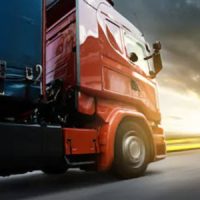Tesla Sued After Autopilot Led To Tractor-Trailer Crash

In 2019, a Delray Beach crash involving a tractor-trailer and a Tesla Model 3 occurred when the Tesla crashed into the side of the tractor-trailer, coming to a stop underneath. The widow of the Tesla driver filed suit against the car company, alleging that Tesla’s autopilot program played a role in the driver’s death. The trial court sided with the widow, as well as granting leave for the plaintiff to apply for punitive damages, which Tesla has recently appealed. However, as of this writing, the ultimate question of liability is still up in the air.
Multiple Defendants May Be Liable
The plaintiff’s initial claim against Tesla alleged that the company was both strictly liable for a defect in the Model 3’s autopilot, and negligent in failing to warn consumers of the pitfalls when using the autopilot system. She also sought the right to file for punitive damages if Tesla were found liable for her husband’s passing as a result of these alleged defects. Courts in Florida have jurisdiction to determine whether or not punitive damages are appropriate in a specific case, and the trial court found that the plaintiff presented enough evidence to create a “reasonable basis” for punitive damages.
That said, Tesla is not the only defendant in the case at hand. The driver of the tractor-trailer involved in the accident was named as a co-defendant, as it was conclusively established that he failed to stop fully at a stop sign. An investigation by the National Transportation Safety Board (NTSB), reported by the Washington Post, referred to the tractor-trailer’s failure to stop at the stop sign as a “probable cause” of the crash – though only one of many. The investigation also cited the Tesla driver’s “over-reliance on automation” and on Tesla’s potentially misleading marketing, which is at odds with the warnings in their vehicles’ owner manuals.
Is The Tractor-Trailer Driver Liable?
The tractor-trailer’s driver was not charged with any crime, but he was a named defendant in the case as of a brief filed in January 2024. If the court decides that his actions contributed to the Tesla driver’s passing, he may be on the proverbial hook for damages, but since he was driving for work purposes, it might be possible that his employer would bear part of the cost. Florida observes a legal theory called vicarious liability (also referred to as “respondeat superior,” or “let the master answer”) which sometimes makes employers liable for the torts of their employees.
That said, in order for a Florida employer to be held liable for their employee’s actions, certain things must be proven: namely, that the employee’s conduct occurred within ‘reasonable’ time and space limitations, and that it was at least partially driven by a wish to serve their employer. Certain conduct cannot be linked to an employee doing their job – but actions like the tractor-trailer driver’s plausibly can. It remains to be seen what the ultimate outcome of the trial will be, but it is important to know that every defendant may be held liable.
Call A Tampa Tractor-Trailer Accident Attorney
As of this writing, the case against Tesla has not been tried – but if you have been injured in an accident with a tractor-trailer and you believe negligence played a factor, know that you have the right to seek compensation for what you have been through. A Tampa tractor-trailer accident attorney from the Rinaldo Law Group can help. Call our office today for a free consultation.
Source:
reuters.com/legal/transactional/tesla-autopilot-crash-victims-estate-clash-over-damages-florida-appeal-2024-03-18/
